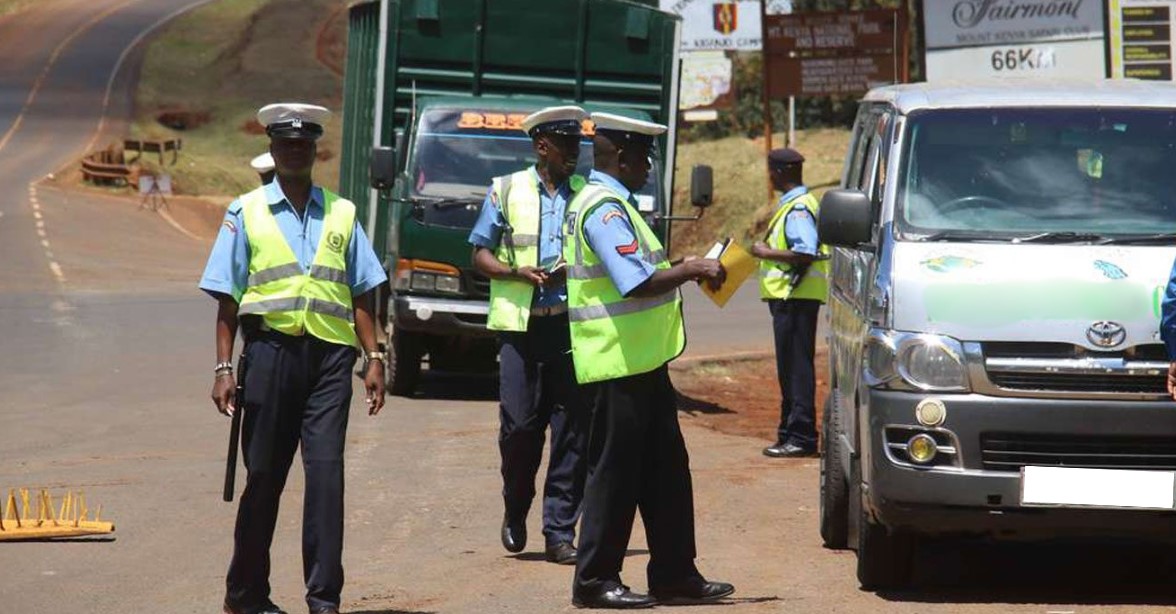Drunk driving remains a significant challenge on Kenyan roads, contributing to numerous accidents, injuries, and fatalities. In response, the Kenyan government has implemented stringent regulations, including the use of Alcoblow, a breathalyzer device designed to detect alcohol levels in drivers. These measures aim to enhance road safety and curb the devastating effects of driving under the influence (DUI). This article provides a comprehensive guide to the rules governing Alcoblow in Kenya, detailing legal limits, testing procedures, penalties, and more, ensuring drivers are well-informed about their responsibilities on the road.
As of August 15, 2025, Kenya’s traffic laws, enforced by the National Transport and Safety Authority (NTSA) and the Kenya Police Service, outline clear protocols for alcohol testing. With road traffic accidents being a leading cause of death in Kenya, understanding these regulations is crucial for every motorist. This article breaks down the legal framework, practical implications, and tips for compliance, offering a clear roadmap for navigating Kenya’s Alcoblow regulations.
Understanding Alcoblow: Kenya’s Breathalyzer System
What is Alcoblow?
Alcoblow is a breathalyzer device used by Kenyan law enforcement to measure a driver’s blood alcohol concentration (BAC). Introduced to combat drunk driving, Alcoblow tests are conducted at roadblocks, during routine patrols, or after accidents to ensure drivers comply with Kenya’s legal alcohol limits. The device provides quick and accurate readings, helping police identify drivers who exceed the prescribed BAC limit.
Legal Blood Alcohol Limit in Kenya
According to Kenyan traffic laws, the legal BAC limit for drivers is 0.08% (80 mg of alcohol per 100 mL of blood) for non-commercial drivers. For professional or commercial drivers, such as those operating public service vehicles (PSVs) or trucks, the limit is stricter, often set at 0.00% in practice, aligning with global trends for zero-tolerance policies in certain jurisdictions.
- Non-commercial drivers: 0.08% BAC
- Commercial/professional drivers: 0.00% BAC (effectively zero tolerance)
- Young or novice drivers: Often subject to zero-tolerance policies, especially under graduated licensing programs
Exceeding these limits constitutes an offense under Kenya’s Traffic Act, leading to severe penalties, including fines, imprisonment, or license suspension.
Legal Framework Governing Alcoblow in Kenya
Key Provisions of the Traffic Act
The rules governing Alcoblow in Kenya are outlined in the Traffic Act and its subsidiary regulations, specifically addressing drunk driving and alcohol testing procedures. Below are the key provisions, as provided in the legal text, with explanations for clarity:
1. Police Authority to Conduct Alcohol Tests
A police officer in uniform has the authority to require a driver to provide a breath sample for an alcohol test under specific circumstances:
- Suspicion of Drunk Driving: If an officer suspects a person is driving or attempting to drive under the influence of alcohol beyond the prescribed limit, they may request a breath sample. This applies to drivers on public roads or public places.
- Post-Accident Testing: If a road traffic accident occurs, an officer may require a breath sample from the person believed to have been driving, operating, or in charge of the vehicle at the time of the accident.
- Hospitalized Drivers: If a driver involved in an accident is in a hospital, an officer may request a sample, provided the medical practitioner in charge is notified and does not object, ensuring the test does not interfere with the patient’s treatment.
These provisions ensure that alcohol testing is conducted systematically, balancing road safety with respect for medical and legal rights.
2. Breathalyzer Standards and Procedures
The use of Alcoblow devices is strictly regulated to ensure accuracy and fairness:
- Approved Devices: Only breathalyzers approved by the Kenya Bureau of Standards (KEBS) may be used for alcohol testing. This ensures reliability and compliance with national standards.
- Single-Use Straws: Each driver must use a single, disposable breathalyzer straw to maintain hygiene and prevent cross-contamination.
- Calibration Requirements: Breathalyzers must be calibrated according to the manufacturer’s instructions, with a written calibration schedule maintained by the officer. This schedule must be presented in court if the test results are challenged.
- Trained Officers: Only police officers trained and certified in the use of breathalyzers can conduct Alcoblow tests, ensuring professionalism and accuracy.
3. Blood and Urine Samples
In cases where a breath test is inconclusive or further evidence is needed, a trained health professional may collect a blood or urine sample. This typically occurs when:
- A driver’s BAC is suspected to exceed the legal limit.
- The driver is unable to provide a breath sample due to medical or other reasons.
- The case requires additional evidence for legal proceedings.
These samples must be handled by qualified professionals to ensure accuracy and admissibility in court.
4. Offenses and Penalties
Under the Traffic Act, the following actions constitute offenses:
- Driving Over the Limit: Driving, attempting to drive, or being in charge of a vehicle on a public road with a BAC exceeding 0.08% (or 0.00% for commercial drivers).
- Refusal to Provide a Sample: Failing to provide a breath, blood, or urine sample when requested by a police officer.
Penalties for these offenses, as outlined in Section 44 of the Traffic Act, include:
- Fines: Up to KES 100,000 for first-time offenders.
- Imprisonment: Up to 7 years for serious or repeat offenses.
- License Suspension: Temporary or permanent suspension, depending on the severity of the offense.
- Vehicle Impoundment: In some cases, the vehicle may be seized.
These penalties reflect Kenya’s commitment to deterring drunk driving and protecting road users.
Practical Implications for Kenyan Drivers
Alcoblow Testing in Action
Alcoblow tests are a common sight on Kenyan roads, particularly during peak times such as weekends, holidays, or late-night hours. Police set up roadblocks in high-risk areas, such as urban centers or highways, to conduct random breathalyzer tests. The process is straightforward:
- Initial Stop: A uniformed officer stops a driver based on suspicion (e.g., erratic driving, smell of alcohol) or as part of a routine check.
- Breath Test: The driver blows into the Alcoblow device through a disposable straw. The device displays the BAC level within seconds.
- Further Action: If the BAC exceeds 0.08%, the driver may be arrested, and additional tests (blood or urine) may be conducted. Refusal to comply leads to immediate legal consequences.
Challenges and Controversies
While Alcoblow has been effective in reducing drunk driving, it has faced challenges:
- Calibration Concerns: Some drivers have questioned the accuracy of breathalyzers, citing improper calibration or maintenance. The legal requirement for documented calibration schedules aims to address this.
- Public Perception: Posts on X highlight public frustration with enforcement, with some arguing that Alcoblow roadblocks are inconsistently applied or overly punitive.
- Illicit Alcohol Market: Rising taxes on legal alcohol have driven some Kenyans to consume cheaper, unregulated drinks, complicating enforcement efforts.
Despite these challenges, the NTSA and police continue to emphasize the importance of Alcoblow in saving lives, with campaigns urging drivers to “Drink Responsibly, Drive Safely.”
Tips for Kenyan Drivers to Comply with Alcoblow Regulations
To avoid legal issues and ensure road safety, drivers should follow these practical tips:
- Know the Limits: Understand that the legal BAC limit is 0.08% for non-commercial drivers and effectively 0.00% for commercial drivers.
- Plan Ahead: If you plan to consume alcohol, arrange for a designated driver, use a taxi, or opt for ride-hailing services like Uber or Bolt.
- Cooperate with Police: Refusing a breathalyzer test is an offense. Always comply with lawful requests from uniformed officers.
- Stay Informed: Keep up with updates from the NTSA and credible news sources like ntsanews.co.ke for changes in traffic laws or enforcement campaigns.
- Avoid Illicit Brews: Consuming unregulated alcohol can lead to unpredictable BAC levels and health risks, as highlighted in recent government crackdowns.
The Broader Context: Drunk Driving and Road Safety in Kenya
Statistics and Impact
Drunk driving is a leading cause of road traffic accidents in Kenya. According to the NTSA, alcohol-related crashes account for a significant portion of the country’s annual road fatalities, with over 3,000 deaths reported in 2024. These accidents not only claim lives but also strain healthcare systems and cause economic losses.
Government Initiatives
The Kenyan government has taken several steps to address drunk driving:
- Stricter Regulations: The Alcoblow rules are part of broader reforms under the Traffic Act to align with global standards, such as those outlined by the World Health Organization.
- Public Awareness Campaigns: The NTSA regularly runs campaigns to educate drivers about the dangers of drunk driving, often in partnership with organizations like the Kenya Red Cross.
- Crackdowns on Illicit Alcohol: Recent efforts to close bars near schools and regulate alcohol production aim to reduce substance abuse and its impact on road safety.
Public Debate on Alcohol Policies
Recent proposals to raise the legal drinking age to 21 have sparked debate. While some, including Cabinet Secretary Kipchumba Murkomen, support the move to protect young people, others argue it contradicts the constitutional recognition of 18-year-olds as adults. These discussions highlight the complex interplay between alcohol policy and road safety in Kenya.
The rules governing Alcoblow in Kenya reflect a robust commitment to reducing drunk driving and enhancing road safety. By setting clear BAC limits, standardizing breathalyzer use, and imposing strict penalties, the government aims to protect lives and prevent tragedies on Kenyan roads. For drivers, compliance is not just a legal obligation but a moral responsibility to ensure the safety of all road users.
As Kenya continues to strengthen its traffic laws, staying informed and making responsible choices are key. Whether you’re a daily commuter or an occasional driver, understanding Alcoblow regulations empowers you to navigate Kenya’s roads safely and legally. Let’s work together to make Kenyan roads safer—drive sober, stay vigilant, and keep road safety first.
For the latest updates on traffic laws and road safety, visit ntsanews.co.ke and follow NTSA’s official channels.





